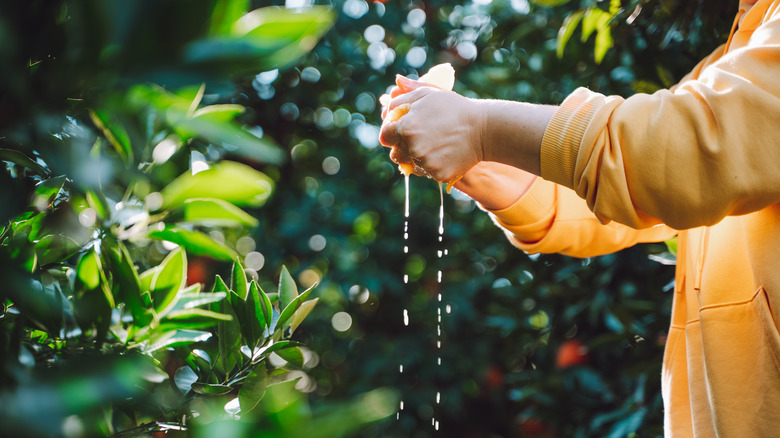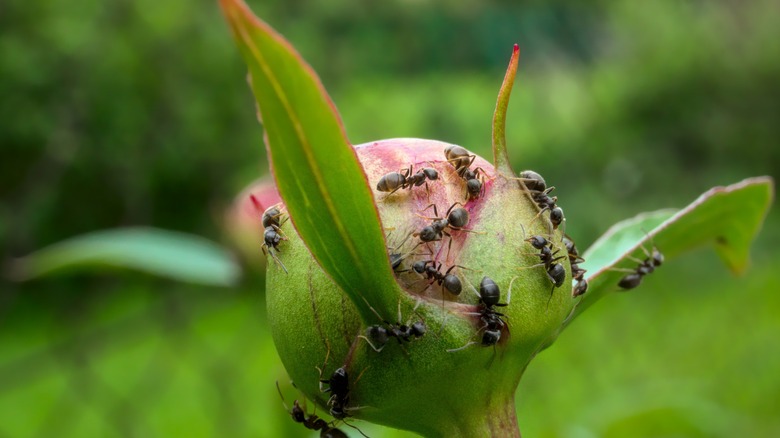Why Do Some Gardeners Feed Orange Juice To Their Plants & Should You Try It?
Gardeners are always looking for creative ways to improve their plants' health. One surprising trend that has been popping up is using orange juice as a plant booster. The idea stems from the logic that since orange juice contains vitamins, minerals, and antioxidants, it could provide plants with extra nutrients to help them thrive. After all, we drink orange juice to stay healthy — why not plants?
Some gardeners believe that the chemical composition of orange juice can make your soil more acidic for a healthier garden, which could benefit plants like blueberries, azaleas, and rhododendrons that prefer those more acidic conditions. Others assume that the sugar content in orange juice might act as a natural fertilizer. There's also the belief that orange juice's vitamins, particularly vitamin C, could contribute to better growth and immune response for plants.
However, while this logic seems appealing on the surface, there's a lot more going on that makes this practice far from ideal. If you are going to try using orange juice on your plants, it needs to be heavily diluted. This is not a long-term solution, though, and there are many reasons why you may just want to avoid it entirely.
Why orange juice is bad for your plants long-term
The reality is that orange juice can do far more harm than good to your plants. One of the main issues is its acidity. While some plants prefer slightly acidic soil, orange juice is too acidic, with a pH of between 3.5 and 4.20. Pouring orange juice directly into the soil can disrupt the delicate pH balance, making it too acidic for most plants. Over time, this can harm plant roots, stunt growth, and even kill them.
While sugar might give plants a short-term energy boost, it can attract pests like ants, gnats, and flies. These insects can damage your plants or spread diseases. The sugar can also promote the growth of mold and harmful bacteria in the soil, creating an unhealthy environment for your plants to grow. In addition, orange juice doesn't provide the right volume of essential nutrients plants need, such as nitrogen and phosphorus, which are found in balanced fertilizers. Without these key nutrients, plants won't develop properly, no matter how much orange juice you pour on them.
While it may sound like a fun experiment, feeding your plants orange juice can have long-term consequences. It's better to stick with tried-and-true methods like making a DIY compost, using organic fertilizers, or appropriate plant food tailored to your plant's needs. If you're looking to fix soil acidity imbalances, use specific soil amendments like sulfur or iron sulfate, which offer a more controlled and balanced solution.

